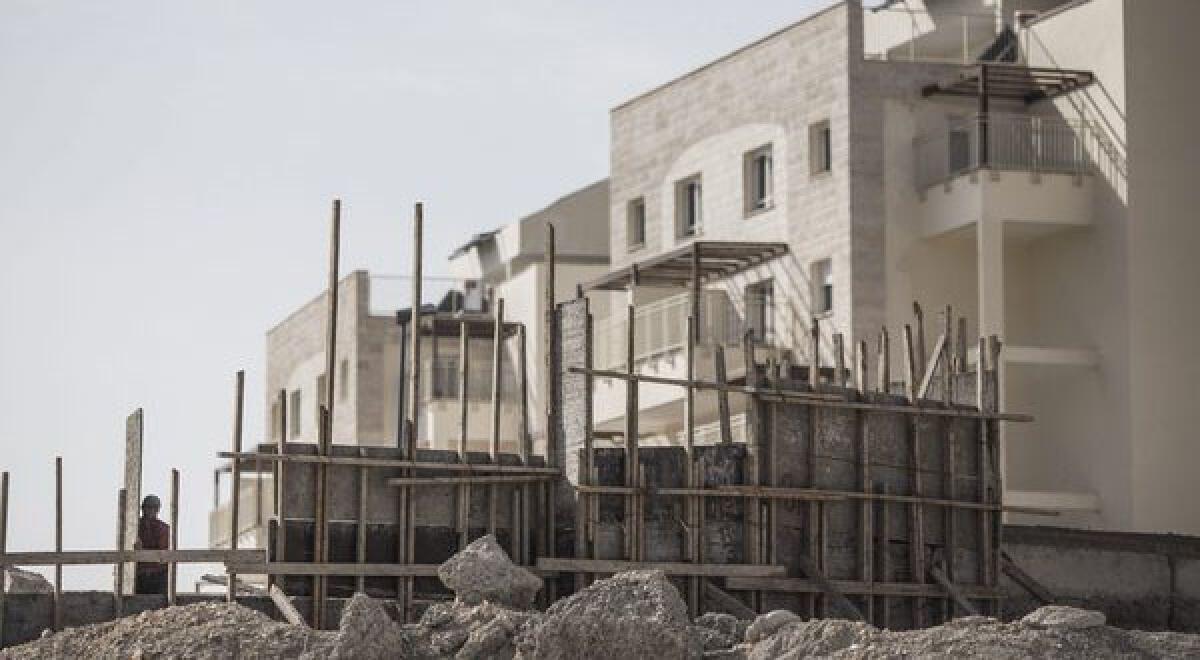Israelis, Palestinians dig in ahead of Kerry’s arrival

JERUSALEM — With U.S. Secretary of State John F. Kerry set to arrive for talks in Israel and the West Bank, tension between Israelis and Palestinians is peaking, with both sides seemingly entrenched in their positions and bracing for possible U.S. intervention.
When the peace talks were renewed in July, the negotiating teams agreed that details of the meetings would remain private on the hope that keeping loaded issues out of the public eye would facilitate progress and prevent premature crises.
Suddenly, however, the media is exploding with details, and the momentum of mutual accusations is building ahead of Kerry’s planned arrival Tuesday evening against a backdrop of reports that the U.S. intends to present its own peace plan in January.
The Palestinian leadership has warned that Israel’s settlement expansion could trip up the peace talks, and Israeli politicians charge that Palestinians are not negotiating in good faith and do not seek to end the conflict.
In part, the immediate crisis followed Israel’s massive settlement push in the West Bank, widely seen as an attempt by Prime Minister Benjamin Netanyahu to appease his hawkish government. Some members of his Cabinet have been increasingly aggressive in their opposition to negotiating a two-state solution, and there has been speculation that Netanyahu gave the green light to settlement construction as a concession to those upset about Israel’s recent release of Palestinian prisoners as part of the peace talks.
The apparent linkage between the prisoner release and settlement construction suggested a problematic trade-off for Palestinian President Mahmoud Abbas, who has warned this could kill the talks, which have so far yielded no results, he said.
The bigger problem remains wide gaps in positions on a number of core issues. Israel will not commit to the Palestinian demand that talks be based on the 1967 borders, with land swaps. The land now being considered for a Palestinian state has been under Israeli control since its 1967 war with surrounding Arab nations.
According to media reports, Israel’s opening position is that the border roughly follow the separation barrier constructed in the last decade, in addition to retaining large settlement blocs as well as key settlements east of the fence.
Security arrangements are key, “in case the peace frays,” Netanyahu told his Cabinet this week, stressing that Israel’s “security border” would remain along the Jordan River. The Palestinians have rejected an arrangement that would allow Israel to “lease” the West Bank area from the Palestinians or maintain a military presence there.
A U.S. plan could provide the missing basic framework for the talks, according to Menachem Klein, a political scientist from Bar-Ilan University. “So far, the talks are held without basic terms of reference or a defined objective, and have reached a point they cannot continue this way,” he said.
The Americans, said Klein, will have to consider their next move, decide whether and when to start pressing, or “pull a James Baker,” referring to the secretary of State under President George H.W. Bush, who famously gave out the White House phone number in 1990 and told Israel to call when it was serious about peace).
Speaking in Riyadh on Monday, Kerry denied reports of an American proposal.
Netanyahu said Israel would consider any proposal but would refuse “external dictates.” But a U.S. proposal could in fact be good for both Netanyahu and Abbas, delivering them from offering tough concessions themselves, suggested veteran political scientist Yaron Ezrahi.
Although in a position to make compromises, both leaders prefer not to venture them “because it is extremely politically costly for them,” said Ezrahi. A U.S. proposal could allow Netanyahu to accept it and present it as a diplomatic necessity — if he is ready, Ezrahi said.
Another key Israeli demand is that the Palestinians recognize Israel as the Jewish state. Netanyahu explained this demand — which he first made in 2009 — as needed to end the conflict and for Palestinians to drop any future claims, including the right of return for refugees.
ALSO:
Syrian government forces advance against rebels
Trove of paintings has works looted by Nazis, masterpieces
Military, CIA compelled medics to abuse detainees, report says
More to Read
Sign up for Essential California
The most important California stories and recommendations in your inbox every morning.
You may occasionally receive promotional content from the Los Angeles Times.










